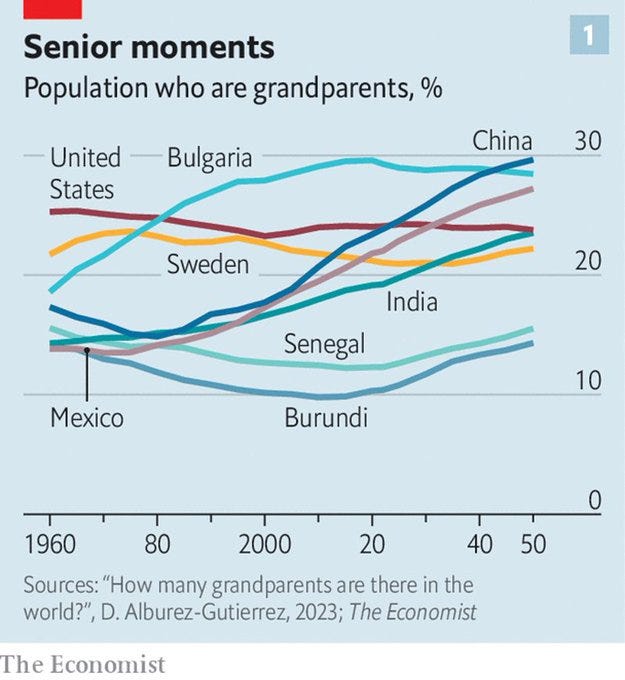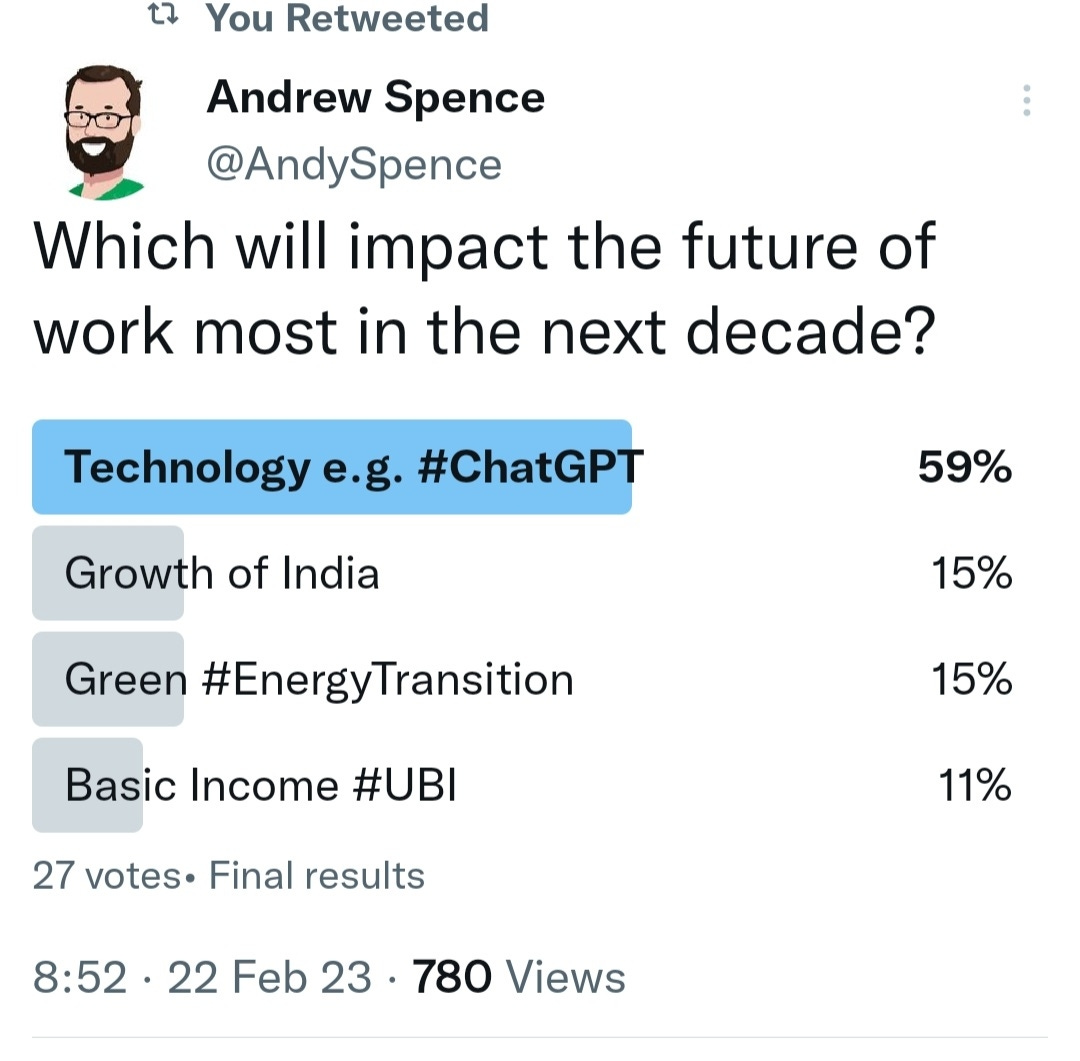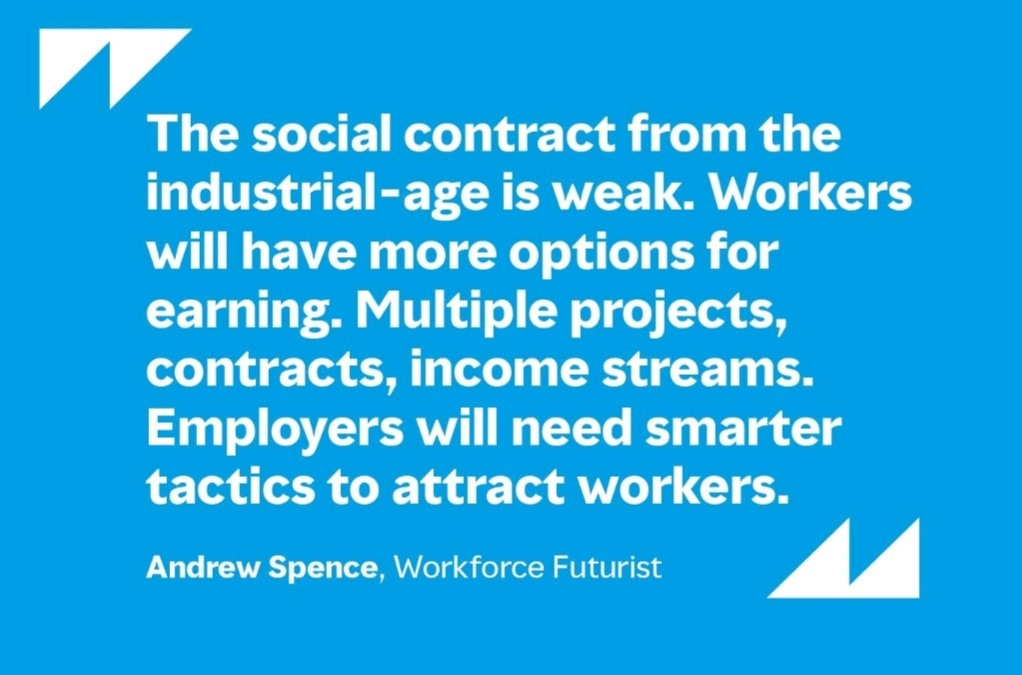Lights, Camera, Action!
The movie, Everything Everywhere All at Once, is expected to do well at the Oscars on Sunday night. The usual tale of a family running a dysfunctional laundry, grappling with the IRS in parallel universes.
A challenge to existential philosophy, a marvel of cinematography, a great movie?
I will leave these questions hanging in the multiverse for now.
What has this film got to do with the future of work?
‘Work’ is being deconstructed into its component parts including skills, tasks, teams, purpose. New versions of careers, jobs and organisations, educational systems are being rebuilt for the 21st Century. The work multiverse is constantly changing, global and influenced by thousands of swirling factors.
These changes to work will eventually impact Everything, Everywhere.
Slowly, slowly – then All at Once.
A tenuous take maybe, but go get the popcorn🍿…
Part I - Everything
As we redesign work, it changes Everything.
Why we work - our societies and industries have been built on jobs. Financial security, purpose in life, taxes to pay for public services, preparing children for their working lives, saving for retirement.
Who you work for – women CEOs make up more than 10% of Fortune 500 companies for the first time in history.
Who minds the kids when you work – it's estimated there are 1.5bn grandparents in the world. Up from 0.5bn in 1960.
Which day of the week we work – a UK study of the four-day week got lots of press. 61 UK companies volunteered to take part in a 'four-day week trail' representing 2,900 employees. 56 of these companies said they would continue. As a scientific experiment, the small self-selecting sample would limit many broader conclusions. Careful with wider extrapolation of these findings. Here’s a Spanish perspective on the Four-Day Week, with reference to my essay, from Eva Rimbau-Gilabert.
Part II - Everywhere
"Of All The Places I Could Be, I Just Want To Be Here With You." — Evelyn.
Someone reading the news in a parallel universe might get the impression that work is mainly carried out in rooftop offices with cocktail bars, tree-house home offices, or in the digital nomad town of Laptop-On-Sea.
Where we work - it is estimated that 55% of US workers, and 69% of UK workers do not work from home. They work in shops, hospitals, factories, delivery vehicles, and, restaurants.
Where moms work - one study showed that working from home can save 72 minutes a day, which is a big deal for America’s working moms.
Who does the work – the global workforce is about 3.5 billion people. In low-income countries only about 19% of work is done with wage and salaried employment (ILO), the rest are self-employed.
How we find work - self-employed workers increasingly use platforms to earn a living. Africa’s digital workers are rewiring the old geographies of labour, with platform workers blogging and designing web-sites. The gig economy is thriving in Latin America, with platforms such as Rappi, iFood, Cabify. The gig-economy is a flawed model in many places, but one we need to improve to build preferable futures for more people.
Our assumptions about work are massively skewed to North American and European corporate knowledge workers, but this is a fraction of the global workforce.
Work is done Everywhere.
Part III - All At Once
My last article on the Five Global Mega Trends Driving Our Work seemed to resonate with people. It was not meant to be comprehensive, but these trends swirl around each other in unpredictable ways.
Here are the results of a quick survey on Twitter :-
Nearly 60% thought Technology e.g. ChatGPT would impact the future of work most in the next decade.
Please give your gut-reaction to this survey question :-
Straight to Video
My keynote speech on “Building a Better World Without Jobs” at Future.Works in Lisbon in October 2022 is available on Video. It’s about 20 minutes.
Find out why the venue was important to me, and also why Cristiano Ronaldo was involved…
The Press Junket
What happens when you get a bunch of workforce experts, some great questions and interaction with a global audience?
I always enjoy Mercer chats and you can read a write-up here.
Designing Your Great Reboot for The Future of Work
It was good speaking with Hung Lee and Adam Gordon on Brainfood Live On Air in the 1st week of January. I recall a good chat about the side-hustle, with some interesting examples from the audience.
Closing Credits
The World of Work is changing and will impact, Everything, Everywhere.
And when you see it, you will see it All At Once.
What’s the best approach for confronting this change?
“Please, be kind. Especially when we don’t know what’s going on.”
Waymond Wang








